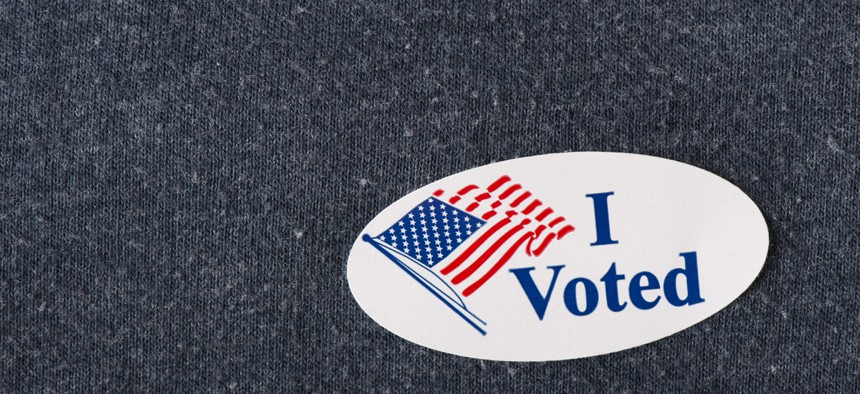New Funding for Election Security Assistance Doesn’t Go Far Enough, Experts Say

Jason Kolenda/Shutterstock.com
Ahead of the 2020 presidential election, Congress appropriated $425 million for states to help secure election infrastructure.
With just over 10 months to go before Americans head to the polls to elect their next president, states will have access to additional money to help shore up insecure voting equipment. The funding—$425 million—was included in appropriations for the Election Assistance Commission under the 2020 spending bills President Trump signed into law on Dec. 20.
EAC Chairwoman Christy McCormick said the commission “will do everything in its power to distribute these funds as expeditiously as possible.” The funding is a boost over Congress’ most recent appropriation of $380 million for election improvements in 2018—the first time since 2010 that Congress made resources available to help states and localities with their election infrastructure and administration.
“State and local election officials from across the country regularly tell us about the need for additional resources,” said EAC Vice Chair Benjamin Hovland. “This new funding will allow election officials to continue making investments that strengthen election security and improve election administration in 2020 and beyond.”
Despite widespread evidence of foreign interference in the 2016 U.S. presidential election and repeated warnings from the intelligence community about the vulnerability of election infrastructure, the bipartisan and independent Election Assistance Commission has struggled with funding and staff cuts as well as House Republicans’ threats to terminate it. With the 2020 presidential election less than a year away, the EAC lacks a permanent director and general counsel.
While election experts welcomed the new funding, they said it may not be sufficient in the face of ongoing threats. In late November, Ohio state officials announced they had prevented an attempted cyber attack by a Russian-owned company on the state’s election infrastructure earlier that month, the Associated Press reported.
Lawrence Norden, director of the Electoral Reform Program at the Brennan Center for Justice, said the funding is “an important and necessary step” to protecting the 2020 elections. However, it “should not be Congress’s only investment in election security,” he said. “State and local election officials need more than haphazard funding to fight that battle. They need a partnership with Congress that includes sustained and ongoing investments in election security. Every jurisdiction must be able to build election infrastructure designed to withstand today’s ever-evolving threats.”
Norden also noted that the House’s version of the spending bill contained more detailed provisions on election security measures but the final version of the legislation signed into law used Senate language that had fewer requirements on how the funds could be spent.
Maurice Turner, deputy director of the nonprofit Center for Democracy & Technology, tweeted that the legislation is “missing critical accountability measures like replacing paperless [direct-recording electronic voting machines] and implementing risk-limiting audits.” Experts have been calling for such measures nationwide following revelations about Russian interference in the 2016 election.
Aquene Freechild, co-director of the consumer advocacy nonprofit Public Citizen’s “Democracy Is For People” campaign, said, “We must ensure that as election hackers’ tactics continue to evolve, we will fight back and protect our democratic institutions.”
“We will continue to press decision-makers at the state and local level to use this funding wisely. In the future, Congress should fund election security more consistently and pass comprehensive election security reform,” Freechild said.






